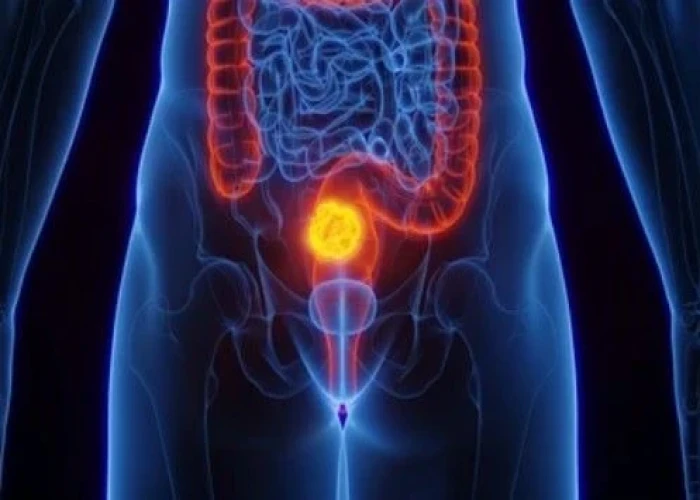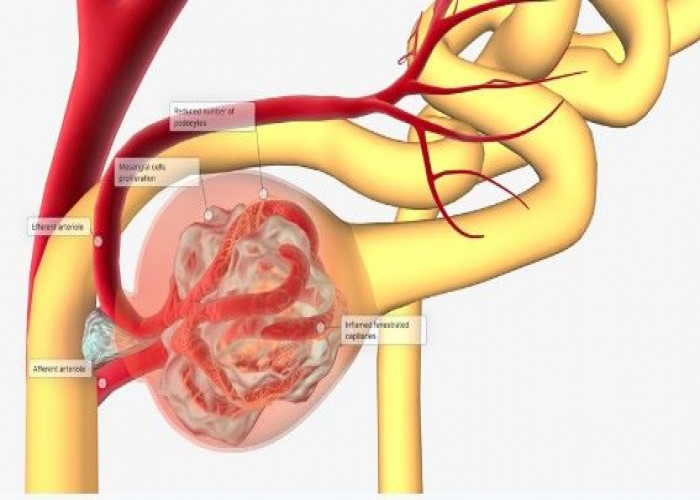 Welcome
Welcome
“May all be happy, may all be healed, may all be at peace and may no one ever suffer."
Glomerulonephritis

Glomerulonephritis is a type of kidney disease that involves inflammation of the glomeruli, which are tiny structures in the kidney that filter waste and excess fluids from the blood. Glomerulonephritis can be acute or chronic and can be caused by a variety of factors, including infections, autoimmune disorders, and certain medications.
Symptoms of glomerulonephritis can vary depending on the type and severity of the disease but may include blood or protein in the urine, swelling in the hands or feet, high blood pressure, and fatigue. In some cases, there may be no symptoms present, and the condition may be detected through routine blood or urine tests.
Diagnosis of glomerulonephritis usually involves blood and urine tests to assess kidney function, as well as imaging tests to visualize the kidney and detect any abnormalities. A kidney biopsy may also be necessary to confirm the diagnosis and determine the underlying cause of the condition.
Treatment for glomerulonephritis depends on the underlying cause and the severity of the disease. In some cases, the condition may resolve on its own, but other cases may require medications to control inflammation or other underlying conditions. In severe cases, dialysis or kidney transplants may be necessary.
Prevention of glomerulonephritis involves maintaining good overall health and seeking prompt treatment for infections or other underlying conditions that may increase the risk of kidney disease.
If you are experiencing symptoms of glomerulonephritis, it is important to see a healthcare professional for a proper diagnosis and treatment plan. Early detection and treatment can help to slow or prevent the progression of the disease and preserve kidney function.
Research Papers
Disease Signs and Symptoms
- Tea-colored urine
- Blood in urine (hematuria)
- Excess protein or cloudy urine (proteinuria)
- High blood pressure (hypertension)
- Fluid retention
- Nausea or vomiting
- Muscle cramps
- Fatigue (Tiredness)
Disease Causes
Glomerulonephritis
Many conditions can cause glomerulonephritis. Sometimes the disease runs in families and sometimes the cause is unknown. Factors that can lead to inflammation of the glomeruli include the following conditions
Infections
Infectious diseases can directly or indirectly lead to glomerulonephritis. These infections include:
- Post-streptococcal glomerulonephritis. Glomerulonephritis may develop a week or two after recovery from a strep throat infection or, rarely, a skin infection caused by a streptococcal bacteria (impetigo). Inflammation occurs when antibodies to the bacteria build up in the glomeruli. Children are more likely to develop post-streptococcal glomerulonephritis than are adults, and they're also more likely to recover quickly.
- Bacterial endocarditis. Bacterial endocarditis is an infection of the inner lining of your heart's chambers and valves. It isn't clear whether the inflammation in the kidneys is the result of immune system activity alone or other factors.
- Viral kidney infections. Viral infections of the kidney, such as hepatitis B and hepatitis C, cause inflammation of the glomeruli and other kidney tissues.
- HIV. Infection with HIV, the virus that causes AIDS, can lead to glomerulonephritis and progressive kidney damage, even before the onset of AIDS.
Autoimmune diseases
Autoimmune diseases are illnesses caused by the immune system attacking healthy tissues. Autoimmune diseases that may cause glomerulonephritis include:
- Lupus. A chronic inflammatory disease, systemic lupus erythematosus can affect many parts of your body, including your skin, joints, kidneys, blood cells, heart and lungs.
- Goodpasture's syndrome. In this rare disorder, also known as anti-GBM disease, the immune system creates antibodies to tissues in the lungs and kidneys. It can cause progressive and permanent damage to the kidneys.
- IgA nephropathy. Immunoglobulin A (IgA) is an antibody that's a first line of defense against infectious agents. IgA nephropathy occurs when deposits of the antibody accumulate in the glomeruli. The inflammation and subsequent damage may go undetected for a long time. The most common symptom is blood in the urine.
Vasculitis
Vasculitis is inflammation of blood vessels. Types of vasculitis that can cause glomerulonephritis include:
- Polyarteritis. This form of vasculitis affects medium and small blood vessels in many parts of your body, including the kidneys, skin, muscles, joints and digestive tract.
- Granulomatosis with polyangiitis. This form of vasculitis, formerly known as Wegener's granulomatosis, affects small and medium blood vessels in your lungs, upper airways and kidneys.
Sclerotic conditions
Some diseases or conditions cause scarring of the glomeruli that results in poor and declining kidney function. These include:
- High blood pressure. Long-term, poorly managed high blood pressure can cause scarring and inflammation of the glomeruli. Glomerulonephritis inhibits the kidney's role in regulating blood pressure.
- Diabetic kidney disease (diabetic nephropathy). High blood sugar levels contribute to scarring of the glomeruli and increase the rate of blood flow through the nephrons.
- Focal segmental glomerulosclerosis. In this condition, scarring is scattered among some of the glomeruli. This may be the result of another disease, or it may occur for no known reason.
Other causes
Infrequently, chronic glomerulonephritis runs in families. One inherited form, Alport syndrome, also might impair hearing or vision.
Glomerulonephritis is associated with certain cancers, such as gastric cancer, lung cancer and chronic lymphocytic leukemia.
Disease Prevents
Glomerulonephritis
There may be no way to prevent some forms of glomerulonephritis. However, here are some steps that might be beneficial:
- Seek prompt treatment of a strep infection with a sore throat or impetigo.
- To prevent infections that can lead to some forms of glomerulonephritis, such as HIV and hepatitis, follow safe-sex guidelines and avoid intravenous drug use.
- Control high blood pressure, which lessens the likelihood of damage to your kidneys from hypertension.
- Control your blood sugar to help prevent diabetic nephropathy.
Disease Treatments
Treatment of glomerulonephritis and your outcome depend on:
- Whether you have an acute or chronic form of the disease
- The underlying cause
- The type and severity of your signs and symptoms
Some cases of acute glomerulonephritis, especially those that follow an infection with streptococcal bacteria, might improve on their own and require no treatment. If there's an underlying cause — such as high blood pressure, an infection or an autoimmune disease — treatment will be directed to the underlying cause.
In general, the goal of treatment is to protect your kidneys from further damage and to preserve kidney function.
Therapies for associated kidney failure
Kidney failure is the loss of 85% or more of kidney function. Acute kidney failure due to infection-related glomerulonephritis is treated with dialysis. Dialysis uses a device that works like an artificial, external kidney that filters your blood.
End-stage kidney disease is chronic kidney disease that can only be managed by regular kidney dialysis or a kidney transplant.
Disease Diagnoses
Disease Allopathic Generics
Disease Ayurvedic Generics
Disease Homeopathic Generics
Disease yoga
Glomerulonephritis and Learn More about Diseases

Stickler syndrome

Lung cancer

Frozen shoulder

Rectal cancer

Genital warts

Acute lymphocytic leukemia

Bronchiectasis

Dilatation of Stomach
glomerulonephritis, গ্লোমারুলোনফ্রাইটিস
To be happy, beautiful, healthy, wealthy, hale and long-lived stay with DM3S.
